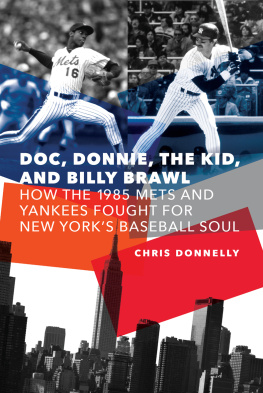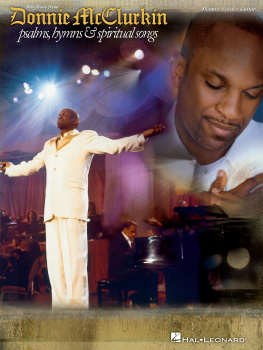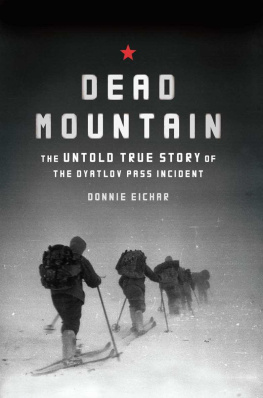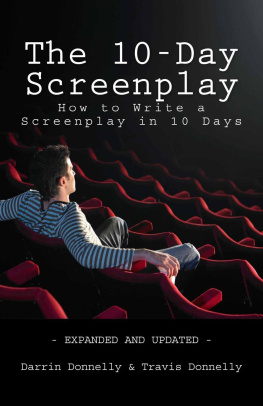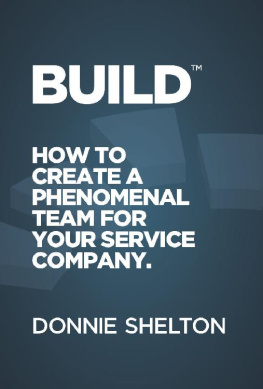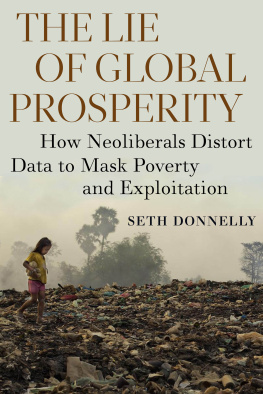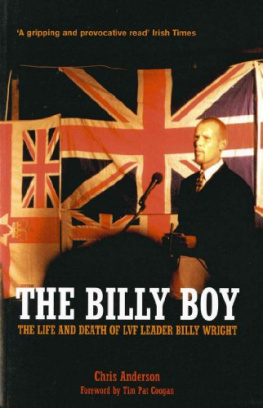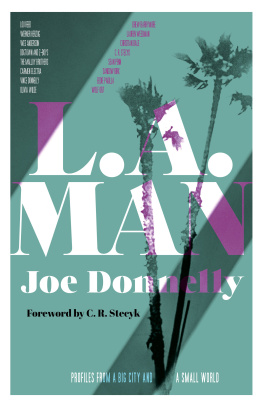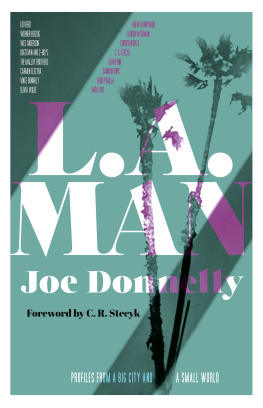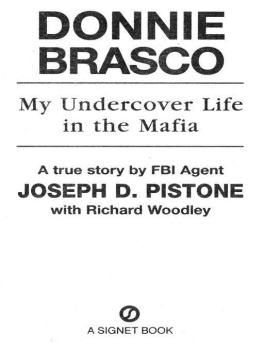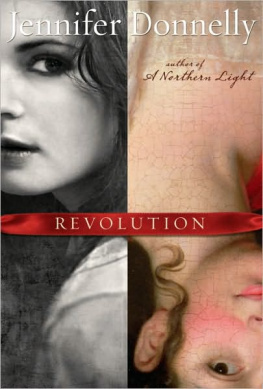Donnelly Chris - Doc, Donnie, the Kid, and Billy Brawl
Here you can read online Donnelly Chris - Doc, Donnie, the Kid, and Billy Brawl full text of the book (entire story) in english for free. Download pdf and epub, get meaning, cover and reviews about this ebook. publisher: University of Nebraska Press, genre: Detective and thriller. Description of the work, (preface) as well as reviews are available. Best literature library LitArk.com created for fans of good reading and offers a wide selection of genres:
Romance novel
Science fiction
Adventure
Detective
Science
History
Home and family
Prose
Art
Politics
Computer
Non-fiction
Religion
Business
Children
Humor
Choose a favorite category and find really read worthwhile books. Enjoy immersion in the world of imagination, feel the emotions of the characters or learn something new for yourself, make an fascinating discovery.
- Book:Doc, Donnie, the Kid, and Billy Brawl
- Author:
- Publisher:University of Nebraska Press
- Genre:
- Rating:3 / 5
- Favourites:Add to favourites
- Your mark:
- 60
- 1
- 2
- 3
- 4
- 5
Doc, Donnie, the Kid, and Billy Brawl: summary, description and annotation
We offer to read an annotation, description, summary or preface (depends on what the author of the book "Doc, Donnie, the Kid, and Billy Brawl" wrote himself). If you haven't found the necessary information about the book — write in the comments, we will try to find it.
Doc, Donnie, the Kid, and Billy Brawl — read online for free the complete book (whole text) full work
Below is the text of the book, divided by pages. System saving the place of the last page read, allows you to conveniently read the book "Doc, Donnie, the Kid, and Billy Brawl" online for free, without having to search again every time where you left off. Put a bookmark, and you can go to the page where you finished reading at any time.
Font size:
Interval:
Bookmark:
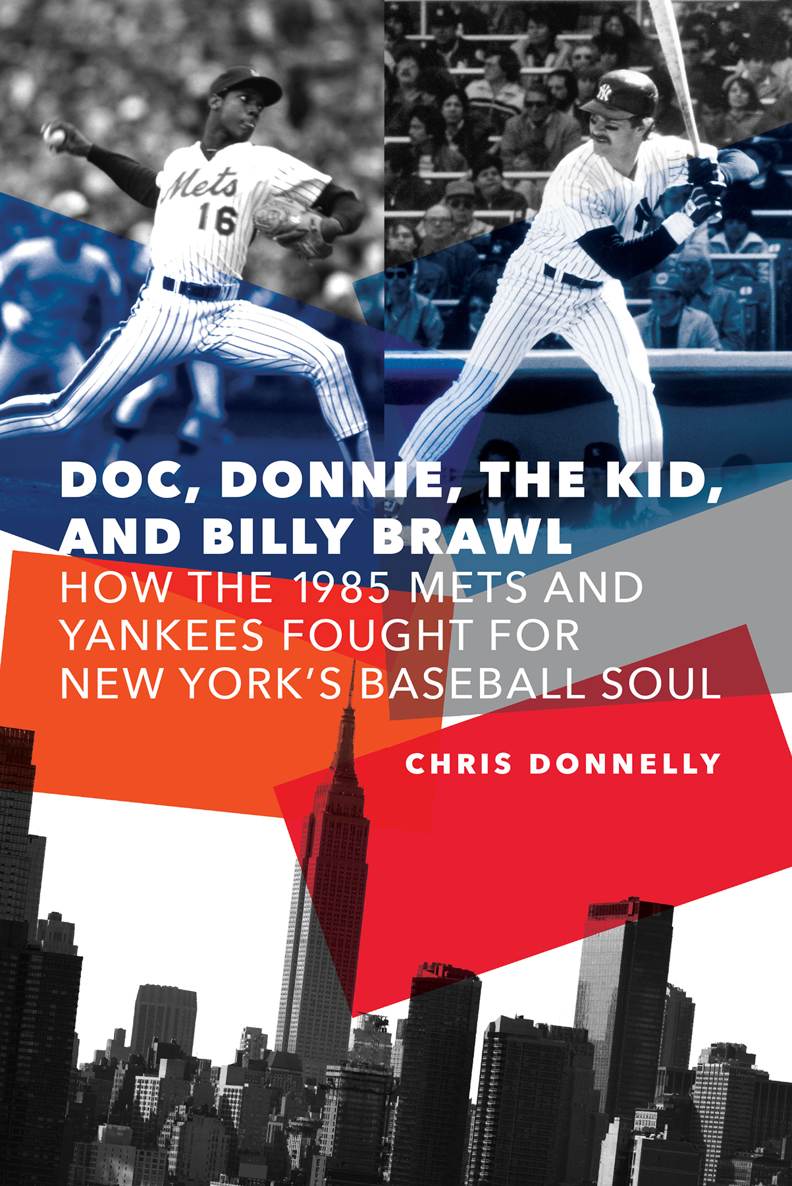
Chris Donnelly captures elegantly that first great baseball summer when the Yankees and Mets were both good enough that you could dream again of another Subway Series like the ones our fathers and grandfathers had been raised and nourished on.
Mike Vaccaro, New York Post columnist and author of 1941: The Greatest Year in Sports
Donnellys latest is a must-read for sports fans everywhere. His attention to detail along with the firsthand accounts of so many players and personalities involved brought me back to the summer of 85 and that unforgettable baseball season.
David A. Paterson, former governor of New York
Chris Donnelly
University of Nebraska Press | Lincoln
2019 by the Board of Regents of the University of Nebraska
Cover designed by University of Nebraska Press; cover images Baseball Hall of Fame / iStock.
Author photo Taylor Shortway.
All rights reserved
Library of Congress Cataloging-in-Publication Data
Names: Donnelly, Chris, author.
Title: Doc, Donnie, the Kid, and Billy Brawl: how the 1985 Mets and Yankees fought for New Yorks baseball soul / Chris Donnelly.
Description: Lincoln: University of Nebraska Press, [2019] | Includes bibliographical references and index.
Identifiers: LCCN 2018027836
ISBN 9781496205537 (cloth: alk. paper)
ISBN 9781496214386 (epub)
ISBN 9781496214393 (mobi)
ISBN 9781496214409 (pdf)
Subjects: LCSH : New York Mets (Baseball team)History20th century. | New York Yankees (Baseball team)History20th century. | Sports rivalriesNew York (State)New YorkHistory20th century. | Gooden, Dwight. | Carter, Gary, 19542012. | Martin, Billy, 19281989.
Classification: LCC GV 875. N 45 . D 64 2019 | DDC 796.357/64097471dc23
LC record available at https://lccn.loc.gov/2018027836.
The publisher does not have any control over and does not assume any responsibility for author or third-party websites or their content.
For Jamie, Erin Elisabeth, and Claire Ella,
who make every day the greatest day of my life.
Another book Big would have loved.
No one does it alone. Writing this book was an eight-year odyssey (with a few stops here and there) that could not have happened without the support and assistance of so many people. First and foremost, what kind of son would I be if I did not thank my mother, Sandy, and my father, Tim? In any and all endeavors of my life, I have received nothing but support from both of them.
To my brothers, Tim and Mike; my sisters-in-law, Taylor and Kori; my brothers-in-law, Glenn and Derek; my mother- and father-in-law, Karen and Roy; the Donnellys, Kassabs, Praschils, Leahys, Dudases, Salzanos, and Kennedys, my sincere thanks for everything you do to make mine and my familys life better.
I am ridiculously fortunate to have a great group of friends that have been supportive, ball-busting companions for decades. From Lincoln to Lakeside to PLHS to TCNJ to those I have come to know through work, thanks to all of you for the laughs, the drinks, the jokes about my hair and athletic ability (or lack thereof), and for just being around.
Special thanks to Jay Horwitz of the New York Mets, who was instrumental in putting me in touch with various members of the 85 team. Thanks also to Pat OConnell, Martin Coco, Sally Gunter, Michael Brown, Bruce Markusen, Louis Barricelli, Brintan Madonna, Dave Campanaro, Kate McGowan, Casey Lynn, Casey Wilcox, Morgan Ballard, Gina DiDomenicis, Mike Vander Woude, Mark Zwolinski, and Sean Darcy, who helped connect me to various Yankees, Mets, Cardinals, and Blue Jays players or assisted with endorsements.
Big thanks to my editor, Rob Taylor, for shepherding me through this process and for having faith in the project.
The calls were starting to come in. It was late in the day on Monday, December 10, 1984. The baseball winter meetings had closed up the Friday before, and the offices of most Major League Baseball teams were relatively quiet. But in the offices of the Montreal Expos and New York Mets, things were just starting to heat up. The press sensed something. They knew that Mets general manager Frank Cashen and vice president Al Harazin had flown down to West Palm Beach, Florida, that day. West Palm Beach just happened to be where Montreal Expos All-Star catcher Gary Carter lived. This was more than a coincidence thought many of the Mets beat writers. Few details had leaked out, but they knew something big was going on. Really big. And they wanted in on the news.
They were right to be suspicious. Behind closed doors over the previous three days, the Mets and Expos had been working out a deal. Somehow, they had managed to keep it quiet for most of the weekend. The plan was to announce a blockbuster trade between the two teams the next day, Tuesday the 11th, in an early morning press conference. But that was no longer possible. The news was going to get out before they could officially announce it, and neither side wanted to lose control over the story. Instead, the two teams rushed together to hold a dual telephone press conference that Monday night. Some players were trading uniforms, and the makeup of the National League East was officially about to change for the rest of the 1980s.
A few weeks before Cashen and Harazin made the flight to southern Florida, Gary Carter felt the need to have a chat with Montreal Expos president John McHale. It was Thanksgiving Day, but something was weighing on Carters mind, and he needed an answer. Rumor had it the Expos wanted Carter gone.
Is there any truth to it? Carter asked McHale.
Montreal, perennial contenders in the late 70s and early 80s, had fallen off the last few years. They won eighty-two games in 1983, then dropped to seventy-eight wins in 1984. Attendance from 1983 to 84 had dropped by nearly seven hundred thousand. The team reportedly lost $3 million. Coincidentally, Carter made nearly $2 million a year. Now, it was a price the Expos could no longer afford to pay. That made Carter a primary target as the team looked to make changes.
Born in Culver City, California, Carter played ball with his older brother and his friends growing up. Playing with older kids not only acclimated Carter to performing against those older and bigger than him, but also showed him he could compete against a higher class of athlete. Carter was dealt a severe blow when his mother died of leukemia when he was just twelve years old. But a deep religious faith pushed Carter to always give it everything he had as he felt his mother was watching him and would expect nothing less.
Despite the fame he acquired playing catcher, Carter did not play that position until the last week of his senior year in high school. He had been a pitcher and shortstop, but when told he would have a better shot of making the Major Leagues as a catcher, he converted. Drafted by the Expos in 1972, he made his Major League debut in 1974. Carters ascension was matched by that of fellow future Hall of Famers Andre Dawson and eventually Tim Raines. Montreal had a core group of talented players that made the Expos a formidable opponent.
Where we were as a team, if you remember 1979, 1980, the Expos came into their own. We finished second to the We Are Family Pittsburgh Pirates in 79. We lost out to them by two games. If there was the wildcard back then we would have been in the playoffs. We lost to the Phillies that next year. They went on to win the World Series. We lost out to them by one game and then of course the strike shortened season in 81, we won the second half, beat
Next pageFont size:
Interval:
Bookmark:
Similar books «Doc, Donnie, the Kid, and Billy Brawl»
Look at similar books to Doc, Donnie, the Kid, and Billy Brawl. We have selected literature similar in name and meaning in the hope of providing readers with more options to find new, interesting, not yet read works.
Discussion, reviews of the book Doc, Donnie, the Kid, and Billy Brawl and just readers' own opinions. Leave your comments, write what you think about the work, its meaning or the main characters. Specify what exactly you liked and what you didn't like, and why you think so.

